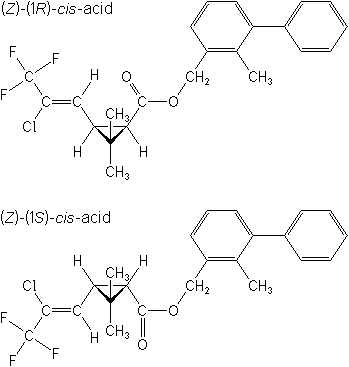Note from FAN: Molecular formula for Bifenthrin, CAS # 82657-04-3

A U.S. District Court judge says the USDA violated public process by permitting the use of pesticide-contaminated compost in the production of organic crops and did so without conducting a formal public review on the issue.
Northern District of California Judge Jacqueline Scott Corley handed down the ruling this week in favor of the plaintiffs: The Center for Environmental Health (CEH), Center for Food Safety (CFS), and Beyond Pesticides. The three groups sued the USDA over the rule that allowed compost from grass clippings and plants that had been treated with the insecticide bifenthrin and other pesticides.
“[T]he reach of the Agency’s new rule stretches beyond bifenthrin and instead allows green waste or green waste compost used in organic production to contain any synthetic pesticide of which bifenthrin is just one example,” Judge Corley wrote in her decision. The USDA has until August 22, 2016 to stop allowing the compost in organic production.
Bifenthrin is considered a possible carcinogen, a known endocrine disruptor, and neurotoxin. In 2009, California’s Department of Food and Agriculture stopped permitting the use of three compost products that contained traces of the chemical. But the ban was lifted in 2010 after USDA allowed the use of the contaminated compost.
Three organic-focused organizations: The Organic Trade Association, California Certified Organic Farmers, and Western Growers Association, supported the USDA’s allowance of the contaminated compost, suggesting that to remove it from organic production would cause “profound disruptions to the organic industry” and require an “astronomical” testing regime to ensure its absence.
“The decision is a vital victory for organic integrity, on behalf of organic consumers, organic farmers, and the environment,” senior CFS attorney George Kimbrell, counsel for the plaintiffs, said in a statement.
“The court decision upholds an organic industry that has been built on a foundation of consumer and farmer investment in ecologically sound practices, principles, and values to protect health and the environment,” said Jay Feldman, executive director of Beyond Pesticides.
“USDA has violated a basic requirement of public accountability in the standard setting process, which is fundamental to public trust in the organic label and continued growth of the organic sector.”
-END-
